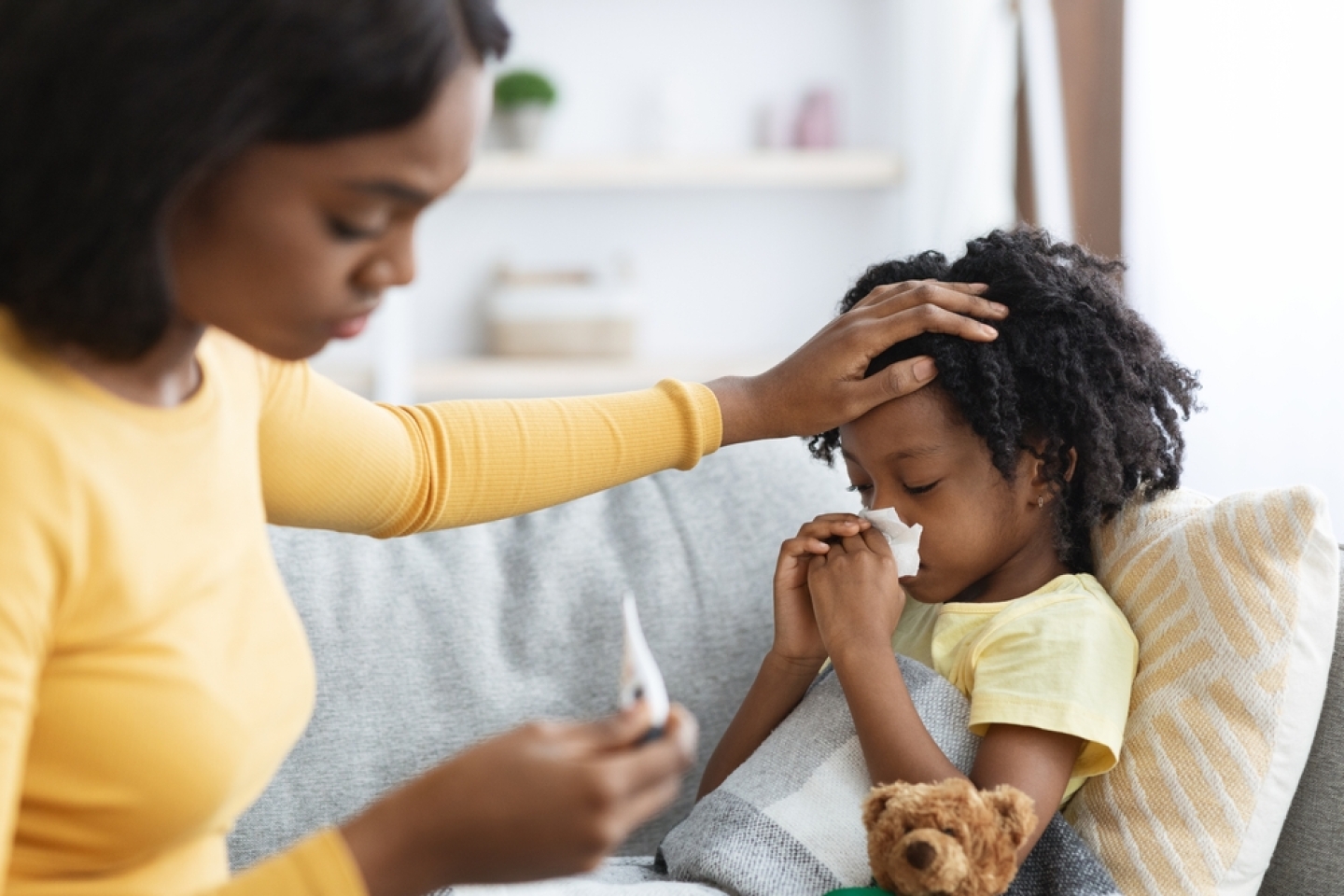
A triple epidemic is upon us. Occurring all at the same time and earlier than in past years, the flu and respiratory syncytial virus (RSV) have joined forces with COVID-19 to create new layers of stress for parents and families in our region and across the country. These respiratory viral infections have also stretched the capacities of emergency rooms, resulting in shortages of hospital beds and staff alike.
Most of us are familiar with the flu—a disease whose symptoms can range from mild to severe, depending on the viral strain that comes along in any particular year. And even though COVID-19 is still a new disease for humans, we have been learning to deal with it and live with it for nearly 3 years. But for many of us, RSV is much less familiar.
So, let’s get familiar with it. That’s the best way to keep our children safe from a common infection that can occasionally turn dangerous, especially in newborns and infants less than 2 months old.
RSV is a common respiratory virus that usually causes mild, cold-like symptoms, but in a small number of children, it can develop into bronchiolitis or even pneumonia. Unlike COVID-19 and the flu, there is no vaccine for RSV just yet, but one may well become available in 2023.
Because of masking and social distancing to contain the spread of COVID-19, there were far fewer cases of RSV in 2020 than usual. However, the arrival of COVID vaccines in early 2021 led some people to discontinue these anti-COVID measures—especially wearing masks. Predictably, RSV cases began to rise in the spring of 2021. RSV and the flu also started earlier than usual this year.
An RSV infection usually comes with the following symptoms:
According to the Centers for Disease Control (CDC), these symptoms usually appear in stages—not all at once. In very young infants, the only symptoms may be irritability, decreased activity and breathing difficulties.
In a small number of infants, RSV can turn from mild to more serious, morphing from an upper respiratory tract infection to a lower one: bronchiolitis, an infection of the bronchioles (the smallest passageways leading to the airways in the lungs), or, rarely, pneumonia.
Flu, COVID and RSV have the potential to lead to an infection of the lower respiratory tract, such as bronchiolitis or pneumonia. Infants under 6 months old are especially vulnerable to having more severe infections.
“Almost all children will have had an RSV infection by their second birthday,” says Dr. Chloe Rowe, Assistant Professor of Clinical Pediatrics at Weill Cornell Medical College and Assistant Attending Pediatrician at NewYork-Presbyterian Hospital. “Only 1 to 2 percent of babies younger than 6 months with an RSV infection will require a hospital stay. Most of them can go home after 2 or 3 days. Rarely, a child may need care in a pediatric intensive care unit (PICU).”
Although specific treatments for RSV are not on offer, parents can manage their children’s symptoms as follows, per the recommendations of Weill Cornell Medicine’s pediatricians:
RSV symptoms typically peak on days 3 through 5 after infection. Fortunately, almost all children recover from an RSV infection on their own.
However, call your pediatrician right away if your child exhibits any of the following:
Breathing trouble: If your child exhibits fast breathing or increased work with breathing, this can be a sign of respiratory distress. “Also watch for the skin at the bottom of the neck or in between the ribs being sucked in or "retracted". Notice grunting, flaring nostrils or congestion in infants that interfere with their ability to drink and stay-hydrated. Dusky or blue color changes to the skin are also a signs of serious breathing problems,” says Dr. Corey Wasserman, Assistant Professor of Clinical Pediatrics at Weill Cornell Medical College and Assistant Attending Pediatrician at NewYork-Presbyterian Hospital.
Dehydration: Look out for the absence of tears with crying, sunken soft spots in infants or a dry or tacky tongue. “Infants or small children who are hard to rouse or lethargic may be dehydrated,” she says. “And decreased urine output also points to dehydration: in an infant, less than one wet diaper every 4 to 6 hours, and in a child, at least every 6-8 hours.”
“As we’ve all learned to do to keep COVID at bay, wash your hands often,” Dr. Rowe says. “Use soap and water and scrub for at least 20 seconds. And remind your children to practice hand-washing all year round.”
The American Academy of Pediatrics urges parents to keep their children up to date on their immunizations, including an annual flu shot, the COVID-19 vaccine and Tdap to protect against whooping cough. Additionally, it’s always advisable to keep your children home from school or daycare when they are sick, and teach them to cover their mouths when they cough or sneeze.
“Try your best to disinfect objects and surfaces in your home on a regular basis, and avoid exposing your child to smoke from tobacco or other environmental pollutants,” says Dr. Wasserman.” And, if possible, consider feeding your baby breastmilk, which has unique antibodies to prevent and fight infections.
If your child is experiencing a medical emergency, please call 911. To schedule an in-office or video visit with your Primary Care pediatrician or team member, please login to Connect or call (646) 962-8000.
For after-hours visits or virtual urgent care, please utilize NYP OnDemand services to meet with a pediatric board-certified Emergency Medicine physician. This service is offered 7 days a week, from 8am to midnight.